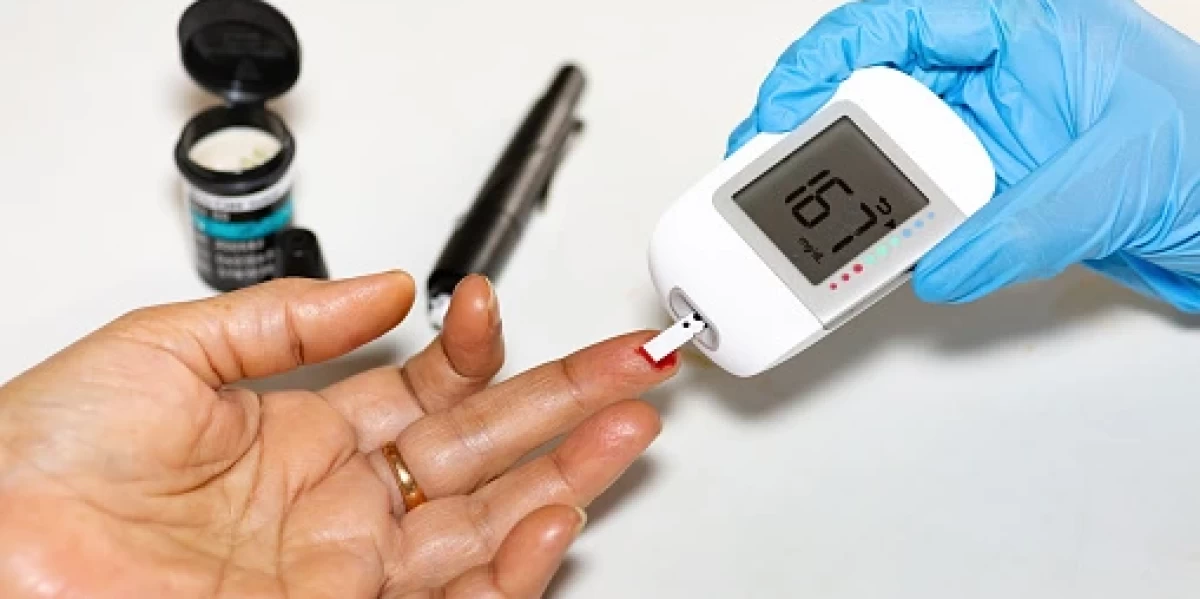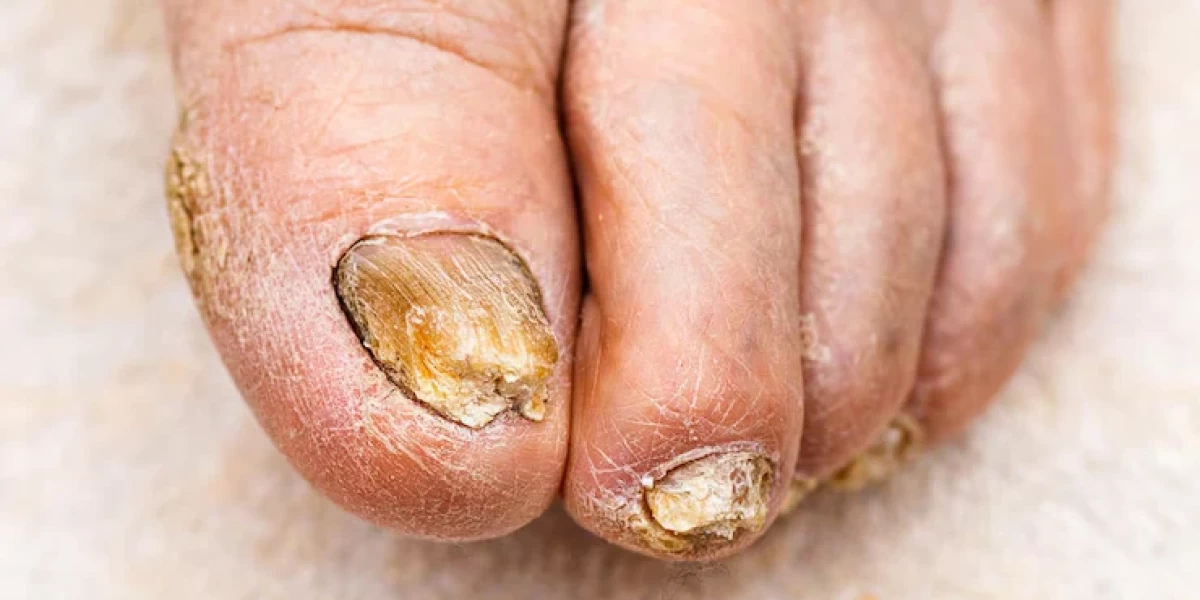Introduction
Cherries are more than a sweet treat or pie ingredient; they’re a nutrient-packed fruit with potential health benefits, especially for those managing diabetes. With their rich flavor and vivid colors, cherries are celebrated for their antioxidants, vitamins, and anti-inflammatory properties. For individuals with diabetes, managing blood sugar levels through smart food choices is essential, and cherries could be an important part of this strategy. This article explores various types of cherries, each with unique nutritional profiles and implications for diabetes management, to help you make informed dietary decisions. Are Cherries Good for Diabetics
Cherries: Types, Nutritional Info, and Consumption Tips

1. Sour Cherries
Nutritional Info (per 100 g)
Sour cherries, also known as tart cherries, are low in sugar, making them an appealing option for people with diabetes. They contain around 50 calories, 12g of carbs, and are packed with vitamins A and C, potassium, and fiber.
Description and Popular Varieties
Popular varieties include Montmorency and Morello cherries, which are known for their distinct tart flavor and bright red color. Unlike their sweet counterparts, sour cherries are often enjoyed in dried form, juices, and baking.
Health Benefits and Uses
The lower sugar content of sour cherries makes them beneficial for blood sugar management. These cherries are rich in anthocyanins, a type of antioxidant known for its anti-inflammatory effects, which can reduce the risk of complications associated with diabetes. Sour cherries are often used in cooking, especially in sauces, desserts, and smoothies.
2. Sweet (Fresh) Cherries
Nutritional Info (per 100 g)
Sweet cherries, like Bing and Rainier, have around 63 calories, 16g of carbs, and provide essential nutrients such as vitamin C, potassium, and fiber.
Flavor Profile and Nutrient Composition
Known for their sweetness and satisfying juiciness, sweet cherries offer an abundance of vitamins, antioxidants, and fiber. These nutrients support heart health and provide energy, making sweet cherries a healthy snack when eaten in moderation.
Benefits for General Health
The high levels of anthocyanins and fiber in sweet cherries help manage blood sugar and reduce inflammation. Their potassium content also aids in blood pressure control, which is beneficial for diabetics. Consuming sweet cherries in controlled portions can be a smart addition to a diabetes-friendly diet. Are Cherries Good for Diabetics
3. Canned Cherries
Nutritional Info (per 100 g)
Canned cherries vary in calories and carb content, often influenced by added sugars and syrups. Typically, they contain around 90 calories and 23g of carbs per 100g when packed in syrup.
Nutritional Breakdown and Additives
Most canned cherries are preserved with added sugars, which can raise blood glucose levels significantly. If available, choose unsweetened or juice-packed canned cherries to avoid extra sugar intake.
Considerations for Diabetics
For individuals with diabetes, canned cherries in heavy syrup should be consumed sparingly due to the high sugar content. Rinsing cherries before eating can remove some of the syrup, and choosing varieties without added sugar is the best choice. Are Cherries Good for Diabetics
4. Maraschino Cherries
Nutritional Info (per 100 g)
Processed maraschino cherries contain around 165 calories and 42g of carbs due to the significant added sugars.
Processing and Nutritional Implications
Maraschino cherries are often preserved in sugar and dyed, making them a high-sugar treat that can cause rapid blood sugar spikes. They also lack the fiber and antioxidants found in fresh cherries, as processing strips many nutrients.
Moderation for Diabetics
Given their high sugar content, maraschino cherries should be enjoyed infrequently. For diabetics, the best approach is to view maraschino cherries as an occasional indulgence rather than a dietary staple.
5. Frozen Cherries
Nutritional Info (per 100 g)
Frozen cherries closely resemble fresh cherries in nutritional content, offering around 63 calories, 16g of carbs, and retaining antioxidants and fiber.
Benefits of Frozen Cherries
Frozen cherries are a convenient option for year-round use and maintain much of the nutritional value of fresh cherries. They are a great addition to smoothies, desserts, or simply enjoyed on their own as a refreshing snack.
Considerations for Diabetics
Since frozen cherries do not typically contain added sugars, they offer a diabetes-friendly option. Opt for unsweetened varieties to avoid blood sugar spikes, and consider portion sizes to keep carb intake balanced. Are Cherries Good for Diabetics
6. Dried Cherries
Nutritional Info (per 100 g)
Dried cherries are nutrient-dense, with around 325 calories and 83g of carbs per 100g, mainly due to their sugar concentration.
Nutritional Concentration and Sugar Content
Drying cherries concentrates their natural sugars, making dried cherries much higher in carbs and calories compared to fresh ones. Some dried cherries are also coated in additional sugars, so always check labels.
Blood Sugar Management
While dried cherries offer fiber and antioxidants, they should be consumed in moderation, particularly for those managing diabetes. Portion control is essential; adding a small handful to yogurt or salads can provide flavor without causing significant blood sugar increases.
Understanding Cherries' Nutritional Impact on Diabetes

1. Cherries and Blood Sugar Control
-
Explanation of Glycemic Index (GI) and Its Relevance to Diabetes:
The glycemic index (GI) gauges the speed at which a food elevates blood glucose levels. Foods with a high GI cause a rapid increase in blood glucose, which can be problematic for those with diabetes. Low-GI foods, like certain types of cherries, release glucose more slowly, providing a steady source of energy without spiking blood sugar. Understanding the GI of cherries can help diabetics include them in a balanced diet.
-
Comparative GI Values of Different Types of Cherries:
Different varieties of cherries, such as sweet and tart cherries, have varying GI values. Sweet cherries typically have a GI of around 22, which is low and favorable for blood sugar management. Tart cherries may have an even lower GI, making them an excellent choice for diabetics looking to control blood sugar levels.
-
How Cherries Impact Blood Glucose Levels:
Due to their natural sugar and fiber content, cherries have a minimal impact on blood glucose when consumed in moderation. Their low GI combined with fiber helps slow the release of glucose into the bloodstream, making them a diabetes-friendly fruit option. Are Cherries Good for Diabetics
2. Glycemic Load (GL) of Cherries
-
Introduction to Glycemic Load and Its Significance:
Glycemic Load (GL) considers both the quality and quantity of carbohydrates in food, giving a more comprehensive view of its effect on blood sugar. While the GI of cherries is low, their GL also tends to be low, meaning that cherries consumed in reasonable portions do not overwhelm blood glucose levels.
-
How Glycemic Load Affects Cherry Consumption for Diabetics:
A low GL in cherries means they can be consumed by diabetics without significant blood sugar spikes. This makes them a better option for snacks or additions to meals compared to high-GL fruits like watermelon or pineapple.
3. Key Nutrients in Cherries for Diabetics
-
Anthocyanins and Antioxidants:
Cherries are rich in anthocyanins, a type of antioxidant known for its blood sugar-regulating properties. Antioxidants combat oxidative stress, which is often elevated in diabetics and contributes to insulin resistance. Including cherries in the diet can help manage oxidative stress, thereby supporting better blood sugar control.
-
Fiber Content in Cherries:
Fiber is vital for slowing sugar absorption and stabilizing blood sugar levels. The fiber in cherries helps diabetics feel full for longer, reducing the likelihood of overeating and keeping blood sugar fluctuations to a minimum.
-
Vitamins and Minerals (Vitamin C and Potassium):
Cherries contain vitamins like vitamin C, which supports immune health, and potassium, which aids in blood pressure regulation—both essential for diabetic health. These nutrients support overall health, helping diabetics manage their condition effectively. Are Cherries Good for Diabetics
4. Health Benefits of Cherries for Diabetics
Potential Risks and Precautions for Diabetics
Cherries can be a delightful addition to many diets due to their sweet and tart flavor, but they present unique challenges for diabetics. The sugar content varies significantly between different types of cherries, which can impact blood glucose levels if not managed carefully. Some cherry varieties, like Bing cherries, contain more natural sugars than others, making it essential for diabetics to select their cherries wisely. People with diabetes should prioritize lower-sugar varieties, monitor portion sizes, and be cautious about added sugars in cherry-based products. Awareness of these factors is key to enjoying cherries safely.
High Sugar Content in Certain Cherry Varieties
Not all cherries are created equal in terms of sugar content. For example, sweet cherries like Bing and Rainier varieties are higher in fructose than tart cherries. Consuming sweet cherries can lead to rapid spikes in blood glucose, which can be problematic for diabetics. On the other hand, tart cherries, such as Montmorency, have lower sugar content, making them a better choice for managing blood sugar levels. When selecting cherries, diabetics should consider the variety, opting for those with less natural sugar and incorporating them in small amounts to avoid spikes.
Avoiding Added Sugars in Processed Cherries
Processed cherries, such as dried, canned, or maraschino cherries, often contain added sugars that can significantly impact blood sugar levels. Dried cherries, in particular, are concentrated in sugar due to the removal of water, which increases their natural sweetness and caloric density. Canned cherries may be preserved in sugary syrups, and maraschino cherries are typically soaked in sugary solutions. To reduce blood sugar risks, diabetics should read labels carefully and choose unsweetened or low-sugar options, focusing on fresh or frozen cherries when possible.
Impact of Canned and Maraschino Cherries on Blood Glucose
Canned and maraschino cherries are particularly high in added sugars and preservatives, which can spike blood glucose quickly. Maraschino cherries are often soaked in sugar solutions, losing most of their nutritional value and fiber, leading to a quick release of sugar into the bloodstream. Canned cherries in heavy syrups also pose similar challenges. Diabetics should avoid these options and instead opt for fresh or frozen cherries, which retain their natural nutrients without excessive added sugars.
How to Identify Healthier Cherry Products
When shopping for cherries, diabetics should look for products labeled “unsweetened,” “no added sugar,” or “100% fruit.” Frozen cherries without added sugar are a nutritious and convenient alternative to fresh cherries. Avoid products with high-fructose corn syrup or other sweeteners listed in the ingredients. By choosing these healthier options, diabetics can enjoy cherries with less impact on blood sugar levels, ensuring they get the benefits of the fruit’s antioxidants and nutrients without the risks associated with added sugars.
Portion Control and Serving Size
Managing portion sizes is crucial for diabetics, as even natural sugars can impact blood glucose. For fresh cherries, a recommended serving size is about half a cup, or roughly 10-12 cherries. For dried cherries, a quarter cup is typically sufficient, as they are more concentrated in sugar. By sticking to recommended serving sizes, diabetics can enjoy cherries without risking significant blood sugar spikes. Practicing portion control allows diabetics to enjoy the nutritional benefits of cherries in moderation.
Recommended Serving Sizes for Fresh, Frozen, and Dried Cherries
For diabetics, recommended serving sizes vary based on the form of the cherries. Fresh and frozen cherries are best consumed in half-cup servings, while dried cherries should be limited to a quarter cup. These smaller servings provide flavor and nutritional benefits while helping manage sugar intake. Portioning helps avoid unnecessary blood sugar spikes, as the fiber in fresh cherries aids in slowing sugar absorption. Eating cherries in these balanced amounts can allow diabetics to enjoy the fruit without overloading on natural sugars.
Importance of Moderation to Avoid Blood Sugar Spikes
Moderation is key when including cherries in a diabetic diet. Cherries are naturally sweet, and even small amounts can raise blood sugar. Eating cherries alongside protein-rich foods, like nuts or yogurt, can help stabilize blood sugar by slowing down sugar absorption. Being mindful of serving sizes, pairing cherries with fiber and protein, and eating them at regular intervals can support stable blood sugar levels, allowing diabetics to enjoy cherries without experiencing sharp spikes.
Allergies and Sensitivities
Cherry Allergies
Cherry allergies, although less common, can still affect a small percentage of people. Symptoms may include itching, swelling, or digestive discomfort. People with a stone fruit allergy, which includes cherries, may be more prone to such reactions. It’s essential for diabetics to be aware of any allergic reactions to cherries, especially since allergies can complicate health conditions. Recognizing symptoms and avoiding cherries if any signs of allergy appear is crucial for safety.
Interactions with Medications
Cherries may interact with certain diabetes medications. For example, people taking insulin or blood thinners should exercise caution with cherries, as some studies suggest certain compounds in cherries may have mild blood-thinning effects. Diabetics should consult their healthcare provider if they are on specific medications to understand if cherries are safe for them. Being cautious with cherry intake and discussing it with a doctor can help prevent any adverse reactions.
Practical Tips for Including Cherries in a Diabetic Diet
Incorporating Cherries in Meals and Snacks
Cherries can be incorporated into a diabetic diet in creative ways, such as adding them to Greek yogurt, oatmeal, or salads. Pairing cherries with protein and fiber-rich foods, like nuts or whole grains, can help maintain stable blood sugar levels. Small amounts of cherries in a balanced meal provide flavor and nutrients without causing significant spikes. By thoughtfully adding cherries to meals, diabetics can enjoy their taste while managing glucose effectively. Are Cherries Good for Diabetics.
Choosing the Best Cherry Products for Diabetics
When shopping for cherries, diabetics should look for options labeled as “no added sugar” or “unsweetened.” Organic and unsweetened frozen cherries are ideal, as they contain no added sugars or preservatives. Reading labels to avoid high-sugar content is important, as it ensures that the cherries remain a healthy choice. By selecting the right products, diabetics can enjoy the fruit’s antioxidants and fiber without risking unnecessary sugar intake. Are Cherries Good for Diabetics.
Monitoring Blood Sugar After Eating Cherries
Self-monitoring blood glucose after eating cherries can provide valuable insights into how the body responds to them. Some diabetics may find they tolerate cherries well, while others may see notable increases in blood glucose. Regularly checking blood sugar helps adjust portion sizes or timing to align with individual tolerance. By closely monitoring blood glucose, diabetics can create a customized approach to safely include cherries in their diet.
How many cherries can a diabetic eat per day
A reasonable portion size for cherries is about 1 cup (approximately 15-20 cherries), which contains roughly 18-20 grams of carbohydrates. This amount generally fits within the daily carbohydrate budget for most people with diabetes, but the exact quantity will depend on individual dietary plans and blood sugar management goals.
If you're managing diabetes, here are some tips to enjoy cherries safely:
- Pair with Protein or Healthy Fats: Eating cherries with a source of protein (like Greek yogurt or nuts) or healthy fats can help reduce the impact on blood sugar by slowing down sugar absorption.
- Monitor Blood Sugar: Test your blood sugar before and after eating cherries to see how they affect you. Some people may be able to tolerate a larger amount, while others may need to stick to smaller portions.
- Choose Fresh Over Dried: Fresh cherries have less concentrated sugars than dried cherries, making them a better choice.
What Happens if You Eat Cherries Every Day?
Eating cherries daily can provide numerous health benefits due to their unique nutritional profile. Cherries are packed with antioxidants, vitamins, and minerals that contribute to overall well-being. One of the primary antioxidants in cherries, anthocyanin, gives the fruit its vibrant red color and is known for its powerful anti-inflammatory effects. Regular cherry consumption may support heart health by lowering blood pressure and reducing bad cholesterol levels. Additionally, cherries are a good source of dietary fiber, which can help regulate digestion, control blood sugar levels, and promote satiety, making them a valuable food for managing weight and blood glucose. However, it’s important to consume cherries mindfully, especially if you have specific health conditions such as diabetes, where portion control plays a key role.
Potential Health Benefits of Daily Cherry Consumption
Cherries offer an array of health benefits that can positively impact daily health markers. For example, the anthocyanins and vitamin C found in cherries help reduce oxidative stress, protecting cells from damage and supporting immune function. Cherries are also known for their potential to reduce muscle soreness and inflammation, making them beneficial for people with arthritis or those who exercise regularly. Additionally, the melatonin content in cherries has been linked to improved sleep quality, which can benefit overall health, particularly for individuals with sleep disorders. By eating cherries daily in moderation, people may experience better joint health, increased energy, and improved mental well-being due to the fruit's anti-inflammatory and stress-reducing properties.
Long-term Benefits for Managing Diabetes
For those with diabetes, daily cherry intake can contribute to blood sugar management and may lower the risk of complications associated with diabetes. Cherries have a low glycemic index, meaning they don’t cause rapid spikes in blood sugar levels when eaten in moderation. This can be especially helpful for people with diabetes looking for low-sugar fruit options. Research suggests that the anthocyanins in cherries may improve insulin sensitivity, thus potentially lowering blood sugar levels. Over time, incorporating cherries into a diabetic-friendly diet can contribute to better glucose management and may reduce inflammation associated with diabetes. However, it's important for diabetics to measure portions carefully and choose fresh or frozen cherries over dried or canned varieties, which often contain added sugars.
Risks of Overconsumption
While cherries are beneficial in many ways, eating them in excess can lead to digestive discomfort and potential blood sugar spikes. Cherries contain natural sugars and can lead to gastrointestinal issues, such as gas and bloating, when consumed in large quantities. For people with diabetes, overeating cherries may disrupt blood sugar control, especially if they consume more than their carbohydrate allowance for the day. To avoid adverse effects, it's recommended to keep portion sizes moderate, typically a handful or about 15 cherries per serving. Balancing cherry consumption with other foods high in fiber and protein can further help manage blood sugar levels.
Conclusion
In summary, cherries are a nutritious and tasty addition to a well-balanced diet. For people with diabetes, they offer the added benefit of a low glycemic index, helping to maintain stable blood sugar levels when eaten in moderation. However, managing portion sizes is essential, as excessive intake may lead to digestive issues or interfere with blood glucose control. Cherries’ anti-inflammatory and antioxidant properties make them particularly valuable for managing diabetes-related complications. A mindful approach to including cherries can enhance health without compromising blood sugar control.
Incorporating cherries into a diabetes-friendly diet can be beneficial if done thoughtfully and with medical guidance. These nutrient-rich fruits provide essential vitamins and antioxidants, which can improve health markers and reduce the risk of complications. However, it’s important for people with diabetes to consult with their healthcare providers to tailor cherry consumption to their dietary needs. By enjoying cherries in moderation, diabetics can benefit from their unique nutritional profile while managing blood glucose effectively.
Frequently Asked Questions (FAQs)
01. Are cherries high in sugar?
Cherries contain natural sugars, but they have a low glycemic index, making them suitable in moderation for people with diabetes.
02. Which type of cherry is best for diabetics?
Fresh or frozen cherries are preferable for diabetics, as they don’t contain added sugars like some dried or canned varieties.
03. How many cherries can a diabetic safely eat in one serving?
A diabetic can typically enjoy around 10-15 cherries per serving, depending on their daily carbohydrate intake and personal health plan.
04. Can cherries help lower blood sugar levels?
The anthocyanins in cherries may help improve insulin sensitivity, potentially supporting blood sugar regulation over time.
05. Are dried cherries good for diabetics?
Dried cherries often contain added sugars, so fresh or frozen cherries are better choices for those managing diabetes.
06. Is it safe for diabetics to eat cherries every day?
Yes, in moderation, daily cherry consumption can be safe for diabetics, provided they monitor their blood sugar levels and serving sizes.
07. What are the health benefits of cherries for non-diabetics?
Cherries provide antioxidants, support heart health, reduce inflammation, and may improve sleep quality for non-diabetics.
08. Do cherries interact with any diabetes medications?
There’s no specific evidence of cherries interfering with diabetes medications, but diabetics should consult their healthcare provider for personalized advice.
09. Are there any side effects of eating cherries?
Overeating cherries can lead to digestive issues, including gas and bloating, due to their fiber content.
10. Can cherries help with diabetes-related inflammation?
Yes, cherries' anti-inflammatory properties may help reduce inflammation associated with diabetes, potentially benefiting joint and heart health.
*Image credits- freepik*
Important Notice:
The information provided on “health life ai” is intended for informational purposes only. While we have made efforts to ensure the accuracy and authenticity of the information presented, we cannot guarantee its absolute correctness or completeness. Before applying any of the strategies or tips, please consult a professional medical adviser.













